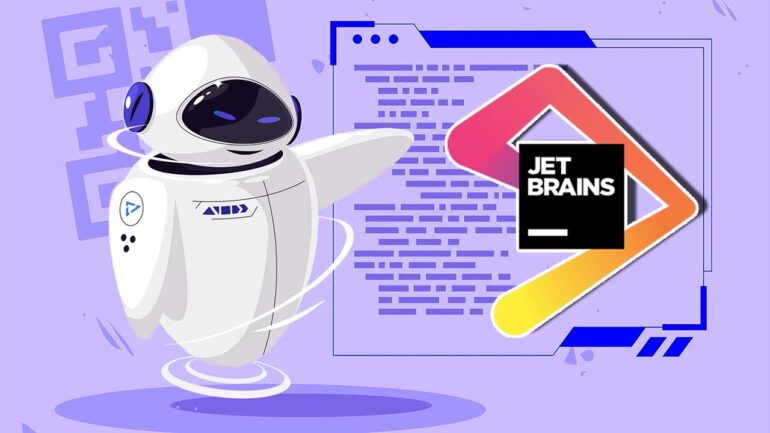TL;DR:
- JetBrains introduced an AI assistant to aid programmers in code writing.
- Concerns arise regarding security, legal risks, privacy, and ethics related to large language models.
- Companies like Google, Microsoft, and OpenAI offer indemnification to address legal concerns.
- Some JetBrains customers vehemently oppose the AI Assistant’s integration.
- Challenges emerge in removing the deeply integrated plugin.
- Users express concerns about security, intellectual property, and trust.
- JetBrains clarifies that AI functionality is not enabled by default and data requires user consent.
- The company is exploring ways to make the AI Assistant both bundled and removable.
- The extent of customer objections within JetBrains’ user base remains unclear.
Main AI News:
In December, JetBrains introduced its AI assistant to aid programmers in their code-writing endeavors. Similar to GitHub Copilot, this intelligent companion is deeply entrenched within JetBrains’ development environments, code editors, and various products, making it an integral part of the developer toolkit. However, the integration of this AI powerhouse has ignited a heated debate within the JetBrains community.
While the promise of neural-network-powered services is enticing, it doesn’t come without its fair share of concerns. Issues surrounding security, legal risks, privacy, and ethical dilemmas associated with large language models are far from being adequately resolved. Companies like Google, Microsoft, and OpenAI have chosen to offer indemnification to their customers under specific conditions, aiming to alleviate fears of potential legal consequences stemming from generative AI.
However, not every entity providing AI services can make such a commitment without incurring costs. Case in point, Zoom faced a challenge last August when it had to clarify that it would not employ users’ chats and calls for AI training purposes, despite a change in its terms of service permitting such usage.
Within the JetBrains community, some customers harbor strong reservations about the AI Assistant and vehemently oppose its presence in their JetBrains applications. These objections arise from various factors, including corporate policies incompatible with AI Assistant or other underlying concerns. The crux of the issue lies in the deep integration of the plugin, making its removal a daunting task.
More than a dozen threads on JetBrains’ YouTrack issue board have emerged, all seeking a solution to delete, uninstall, or completely eradicate the AI Assistant plugin since its inception. A thread titled “Provide the possibility to remove a plugin completely from the system” outlines the reasons why users might want to eliminate this integrated feature from their developer tools, such as PyCharm, IntelliJ IDEA, and other JetBrains applications.
Software developers contributing to the support forum have voiced multiple concerns, describing the plugin as “bloatware,” a potential risk to corporate intellectual property, a security vulnerability, an annoyance, and a breach of trust. One user named Rusty Deaton emphasized that they cannot use the product within their company due to security concerns associated with the default inclusion of AI functionality.
Another developer, Marcus Grenängen, condemned the move, stating that bundling an AI tool by default raises significant trust issues and jeopardizes user data. He expressed his intent not to renew any subscriptions due to this breach of trust.
Alan Burlison, another developer, highlighted the inherent risks associated with the AI-based service. He questioned the licensing, intellectual property, and legal implications while expressing concerns about the potential leakage of a user’s company’s intellectual property to unknown destinations, including direct competitors.
In response to these concerns, Matt Ellis, a developer advocate at JetBrains, attempted to clarify misunderstandings and provide reassurance to those alarmed by the AI Assistant’s presence. He stated that while the plugin is bundled and enabled, no AI functionality is activated by default, and no data is sent off the user’s machine without consent.
Ellis emphasized that users must log in, accept data policies, and either purchase a subscription or start a trial to enable the AI service. Moreover, any data sent to the AI service is not used for training, and machine learning support for ranking and completion relies on on-device models, ensuring no data is transmitted off the user’s device.
JetBrains acknowledges the concerns raised by its customers and is actively exploring ways to make the AI Assistant both bundled and fully removable. However, removing a bundled plugin presents challenges, potentially disrupting application signatures and causing issues with updates.
While it remains unclear how representative these objections are of JetBrains’ broader customer base, the company is committed to listening to feedback from all segments of its community, including those who find value in the AI Assistant alongside those who voice concerns.
Conclusion:
The introduction of JetBrains’ AI Assistant highlights the growing concerns in the market regarding the integration of AI tools in developer environments. While the company is actively addressing objections and working on solutions, this situation underscores the need for transparency, user control, and flexibility in AI integration strategies. As the demand for AI assistance in software development continues to rise, businesses must strike a balance between innovation and addressing customer concerns to maintain their competitive edge in the market.

